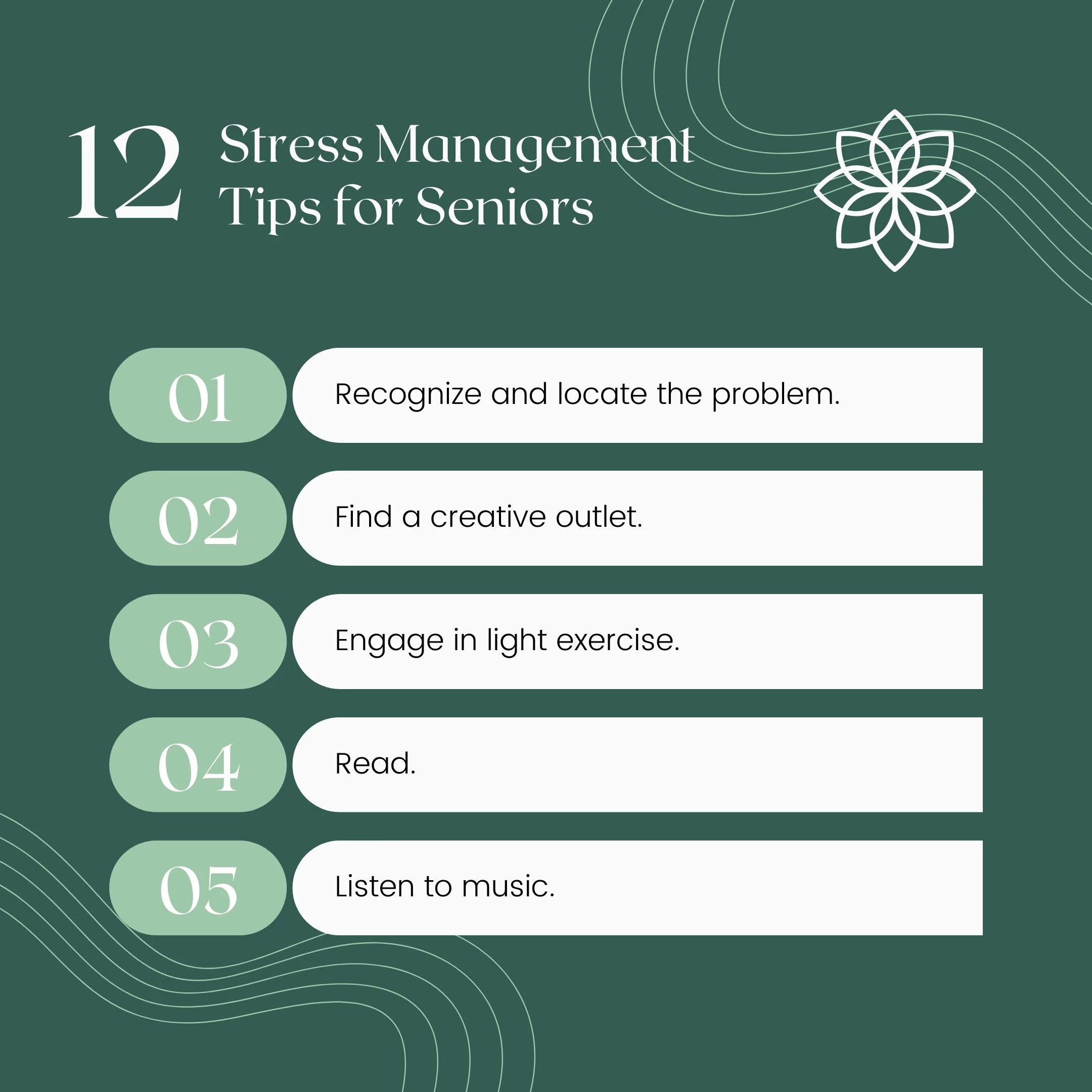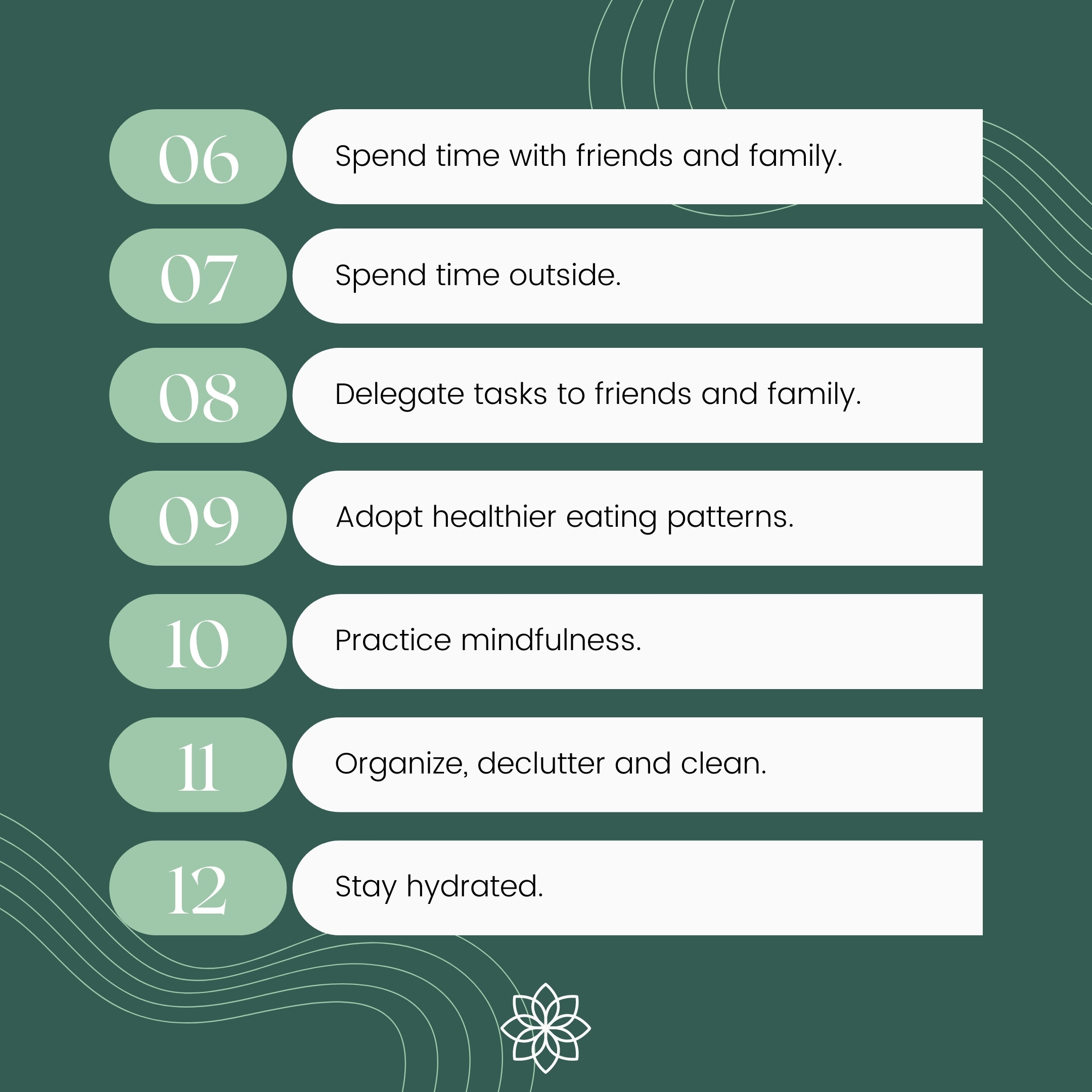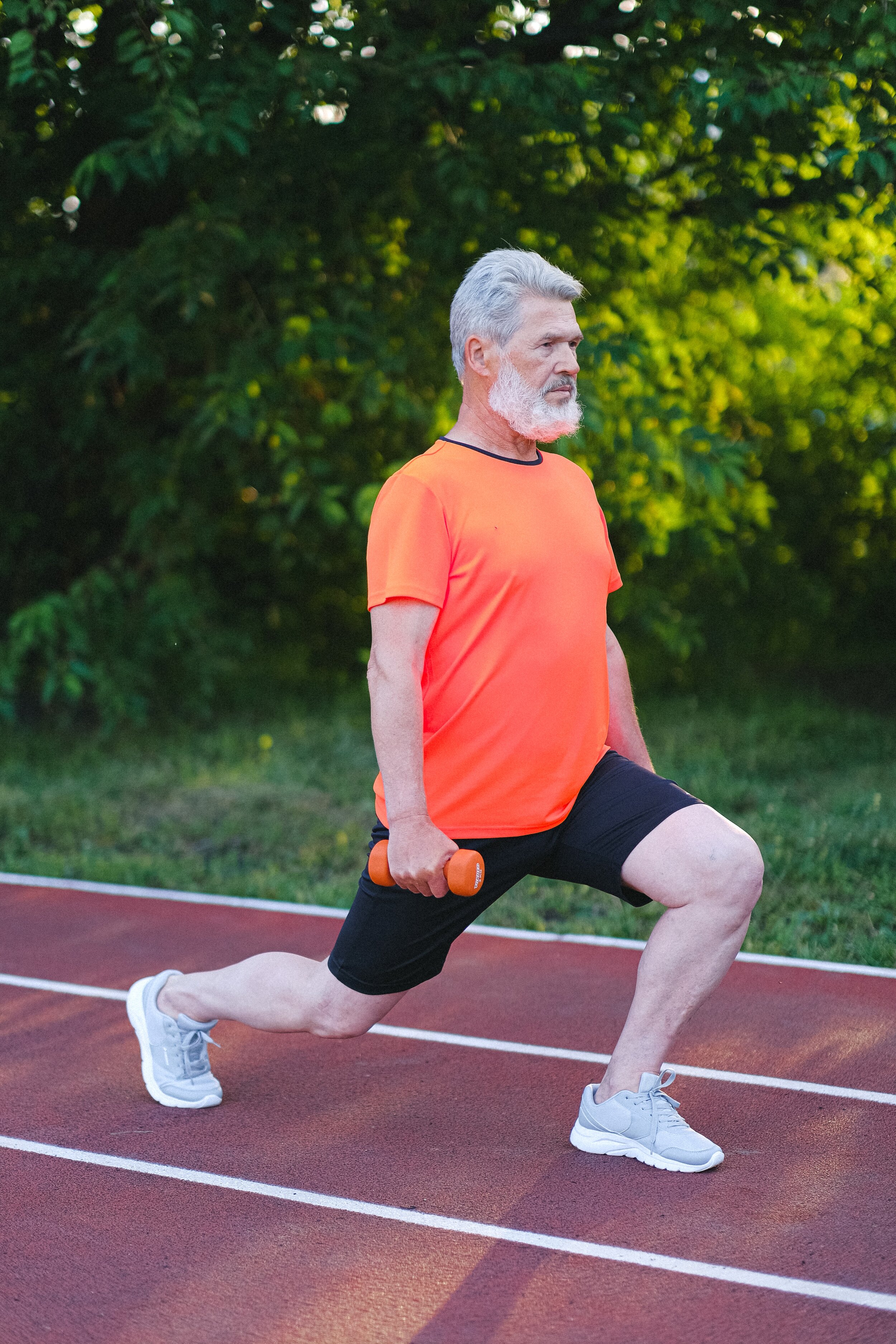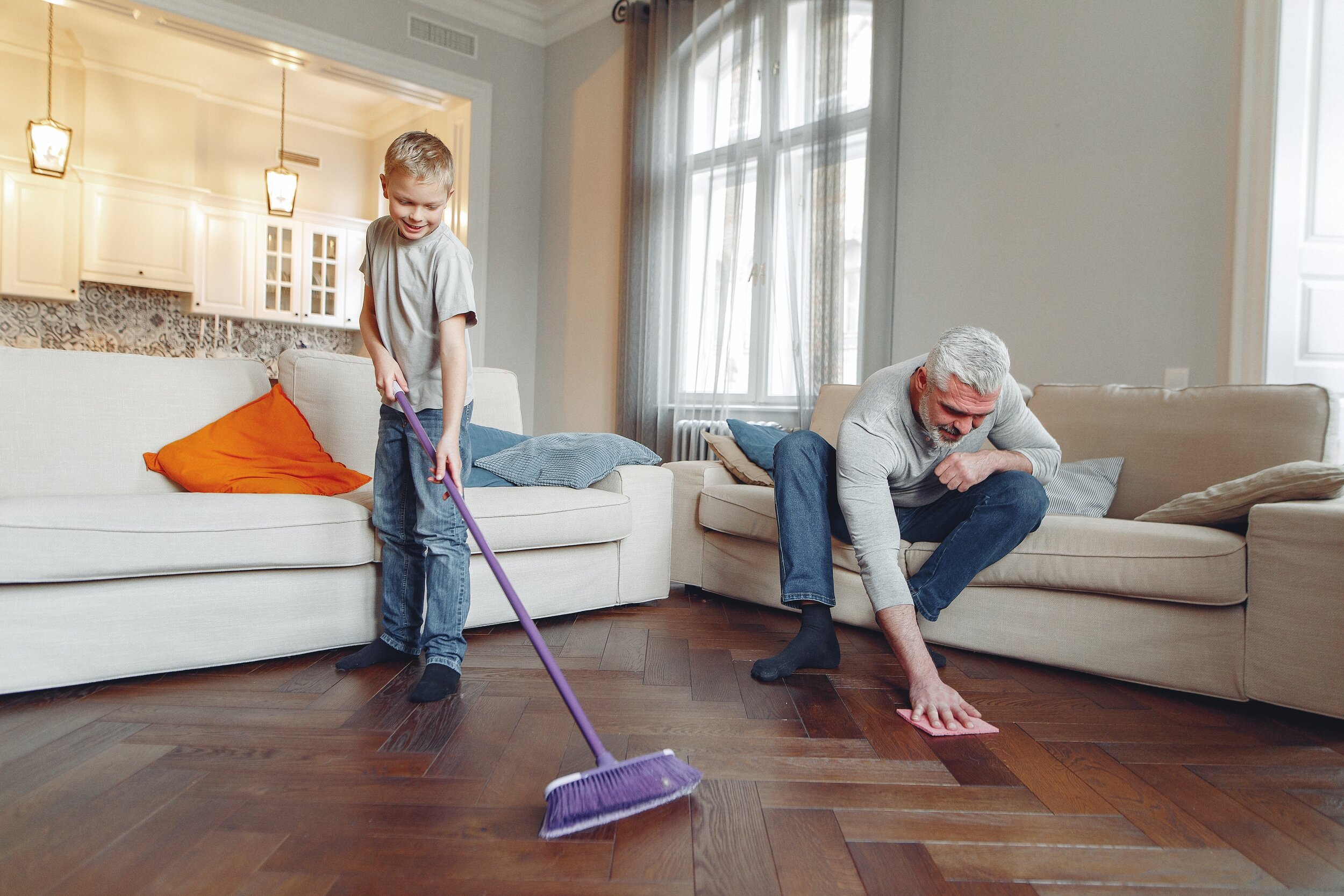Stress Management Tips for Seniors
Stress is a regular part of life, especially as one ages. Retired people can still experience stress in many forms. Despite its normalcy, stress can still have negative effects on our physical and mental health – especially in old age – and must be managed before it goes too far.
Stress management is actually one of many methods of maintaining brain health, since elevated stress levels are extremely harmful to the brain as well as the body. Stress impacts all of the body’s systems. Some severe physical and mental health issues caused or amplified by persistent stress include anxiety, depression, diabetes, high blood pressure, insomnia, diarrhea, constipation, heart disease, heartburn, Alzheimer’s, dementia, a weakened immune system, and many more unwanted problems.
Fortunately, you are not alone and there are plenty of steps you can take to minimize stress. Here are twelve tips for managing stress in old age that we hope will successfully mitigate your stress. If you are receiving home care services and are experiencing stress, alert our caregivers so they can make sure to watch for warning signs and help you accordingly.
1) Recognize and Locate Stress
The first step to managing stress is recognition. Without recognizing and locating the problem, you cannot solve it. Most people understand when they are stressed, but sometimes you may feel fine while your body is telling you otherwise, and it might be harder to identify the cause of your worries.
Stress manifests physically. Some telltale signs of stress in seniors include short-term memory and concentration difficulties, changes in eating habits, withdrawal, isolation, headaches, body aches, heart palpitations, sickness, indigestion, weight gain or loss, difficulty sleeping, fatigue, mood swings, irritability, and more. If you have any of these symptoms, you may be stressed. Perhaps you don’t know the specific source behind your anxieties. If you cannot accurately locate the source, you have at least recognized that you are stressed and can now work on mitigating it.
A stressed senior
2) Find a Creative Hobby
Finding a hobby that lets you express yourself creatively and meaningfully can be the perfect stress reliever. On top of letting your imagination flow free, hobbies allow you to take time for yourself, get to know yourself better, think on a deeper level, stimulate your mind and body, focus all your energy on one occupation for a short amount of time, and let loose and have fun regularly.
Hobbies are physically and psychologically beneficial. Besides the previously mentioned advantages, hobbies also boost your mood, recover or push away burnout, make you less depressed and anxious or decrease the chances of you becoming depressed or anxious, allow you to connect with others with the same hobbies, take a break, and lower your blood pressure and cortisol levels. Creativity, too, reduces the risk of dementia, makes you smarter, and boosts your immune system. There are no cons to expressing yourself through hobbies!
There are so many stimulating, resourceful hobbies you can take on to alleviate stress, such as knitting, reading, painting, drawing, doodling, journaling, gardening, scrapbooking, puzzles, and coloring. All of these activities are inspiring and safe for seniors.
3) Exercise Lightly
Physical activity produces endorphins, which are calming and mood-boosting chemicals located in the brain that are often cited as ‘natural painkillers’. It also generates new braincells, boosts our moods, improves circulation, allows you to lose or maintain weight and build muscle, makes sleeping easier, and enlarges the hippocampus (the portion of the brain involved in learning and memory) which decreases in size during old age, all of which reduce stress by improving cognitive functioning, mental and physical health, and cardiovascular, respiratory, and muscle health. There are evidently many good reasons to exercise regularly!
Try exercising lightly every day for half an hour or more and you will feel a noticeable difference in your stress levels. Ensure that you are doing senior-safe, lower-intensity exercises, such as tai chi, walking, stretching, even gardening, and more, as many exercises foster overexertion and may be detrimental to aging bodies. Keep your mind and body active every day to allay chronic stress!
4) Read
Reading is a great stress reliever that doubles as cognitive exercise. While you read, you keep your brain occupied, allow it to explore new realms, ideas, or concepts, and think deeply about yourself, the world, or other characters and their worlds. It equally enriches your vocabulary, improves your memory (and is therefore good for preventing and slowing down dementia and Alzheimer’s disease), critical thinking skills, and concentration, increases empathy, boosts your IQ, allows you to experience more sensations, and is extremely mentally stimulating. It is an incredibly relaxing activity that simultaneously makes you feel at peace and improves your mental state and cognitive functioning.
Pick up a fiction or nonfiction book, a magazine, or a newspaper to find your next read and enhance your mind and soul. Check out your local library or browse your local bookstore online or offline. Reading for half an hour is proven to be as relaxing as doing yoga for half an hour. It can even help you sleep better if you put down your phone and opt for a book before bed for half an hour to an hour every day. Pick up a book, immerse yourself in a fictional world, and feel your stress levels going down!
A senior enjoying his daily newspaper outside
5) Listen to Music
Pop out your Spotify account, radio, CDs, vinyl – whichever format you prefer, and listen to old favorites, find new music, or enjoy some calming tunes. Listening to calming music can particularly reduce the stress hormone cortisol, thus lowering blood pressure. Music can also boost memory due to memorizing lyrics and rhythms, enhance moods, increase energy, lessen depression and anxiety, and get you moving. Additionally, the nostalgia of hearing old favorites can transport you back to the past and make you happy, or make you think deeply. Funnily enough, a research study found that upbeat music helped poorly performing basketball players play better when they were feeling stressed and pressured.
The great thing about music is that it applies to every mood, and can even get you into certain moods. If you’re feeling low, play some cheery music. If you want to relax, play some slower, calmer music. Either way, music is one of the best stress relievers and can make anyone happy. You can even incorporate it into your day; listen to music on a walk, while you’re reading, while you have company, and so on. Music motivates you and even helps you bond with others. If you’re under some stress, dust off your CDs and earphones and get grooving!
6) Spend Time with Friends and Family
Sometimes, spending time with your loved ones is the best medicine. Prolonged isolation can increase feelings of depression and anxiety, which worsen or directly cause physical health issues. Socialization is a necessary part of being human and is important for feelings of connection and self-worth. Have more frequent conversations with family and friends, whether in person or over the phone. Invite them over or have a nice outing with them! Many beautiful friendships are formed with caregivers, too, due to the amount of time you will be spending with them. You can even join a club or class on the side, such as a book club or a local language class, to keep yourself entertained and socially connected.
7) Spend Time Outside
Like many stress-relieving activities on this list, spending time in nature is physically and mentally healthy. Many people have realized nature’s benefits after being trapped inside for a year and a half during the COVID-19 pandemic. After a dismal, stifling year, merely stepping outdoors has improved many people’s moods dramatically.
Being outdoors is proven to lower cortisol levels, which is also known as the stress hormone. It also lowers blood pressure, improves concentration by allowing us to focus on the world around us, prompts quicker healing and thus lessens pain, boosts energy, enhances creativity, is good for your vision, improves your immune system, gives you your needed dose of Vitamin D and augments serotonin levels, improves your memory, and much more, ultimately proving to be good for your physical and mental health.
Walking, exercising, or even just sitting outside for a few minutes every day can have drastic effects on your wellbeing. There is such a thing as ‘forest therapy’ for a reason! Spending time in the great outdoors is an excellent way to naturally shrink your stress levels.
A senior exercising outdoors
8) Delegate Tasks
Perhaps household chores, errands, and other tasks are getting you down, especially if they are time-consuming or strenuous. As one ages, the body’s elasticity decreases, and certain tasks become more difficult or demanding than they previously were. Even simple duties can seem more physically taxing, and can therefore be a huge source of stress.
Sometimes a certain degree of dependence is necessary to live your best life. Ask your family and friends to step in and take some of these tasks on for you to make your life easier. This is Meaningful Living’s primary goal; to aid you with the strains of aging and simplify your life. Our caregivers are here to take on responsibilities that you can no longer handle, such as running errands, cooking, cleaning, and more, and make your life much less stressful overall.
9) Adopt Healthier Eating Patterns
Interestingly enough, stress and nutrition are closely related. Sugar overconsumption also induces diabetes, obesity, and other diseases, messes with your blood pressure levels, and can impair cognitive functioning. Eating too many sugary foods can make you feel down about your eating habits, affecting your mental state. Foods high in fat have a similar effect; they incite weight gain, body pain and dissatisfaction, and even death in the long run. Treat your body with the respect it deserves by nourishing it with fruit and vegetables, protein, and omega-3 fatty acids and you will be rewarded mentally and physically. Our caregivers are trained to make you delicious, nutritious meals and can monitor your diet.
Of course, all this is not to say that you should never have sugary or fatty foods. Do everything in moderation; don’t restrict yourself unnecessarily, but don’t overindulge, either. Treating yourself occasionally while having an overall healthy diet will lead to greater satisfaction and improved health!
10) Practice Mindfulness
Meditation is another commonly cited stress reliever. The art of mindfulness allows you to discard your worries and remain in the present moment by breathing steadily, reflecting on yourself, acknowledging your thoughts and feelings, practicing gratitude, and concentrating in order to slow down your racing thoughts and steady your heartbeat. Sit up straight, breathe in and out, and focus. One common meditation method that people use to facilitate meditation as first-timers is to think of the things for which you are most thankful in your life. In this way, meditation can increase gratitude and empathy. Additionally, meditation rewires the brain, making it an excellent stress-reduction method for those with dementia, Alzheimer’s, anxiety, and depression.
11) Organize, Declutter, Clean!
Declutter, clean, and organize your living space to reduce tension. A disorderly space can be a huge, unnecessary stressor. The layer of dust on your shelves or overcrowded dresser can feel like looming obstacles that keep piling up. This is normal, as clutter is actually linked to negative emotions like irritability and worry. By removing those physical obstructions through organization, decluttering, and cleaning, you clear your mind and ultimately feel happier and more relaxed due to the weight that has been metaphorically lifted off of your shoulders and literally lifted or wiped off of your living space.
All three of these actions have been scientifically proven to reduce stress and induce inspiration. Wipe down your furniture, reorganize your bookshelves in a logical manner, and pass unwanted or unused things along to people who need them. These ritualistic, repetitive behaviors boost your physical and mental health by disinfecting your living space, exercising your body, and clearing anxious thoughts due to the accompanying feelings of control and accomplishment that come with organization, decluttering, and cleaning. Don’t fear; if this is another source of stress or is a strenuous activity, our caregivers are prepared and happy to do this for you, or to grab the mop alongside you and clean together while they take on the more strenuous chores.
An aging adult and his son cleaning the house together
12) Stay Hydrated
Finally, keeping yourself hydrated fights stress. While “drink water” and “stay hydrated” are commonly used condescendingly when speaking to others about mental health problems, it is proven to at least combat stress. Remaining properly hydrated decreases cortisol levels and can fend off headaches, which, of course, only add to stress. The recommended water intake for seniors is 1.7 liters (7.1 cups) per day, or one cup per every 20 pounds of weight. However, this varies depending on factors such as sex, body weight, activity levels, and the climate of the area you inhabit. Seniors are at higher risk of dehydration, since the body’s water decreases by 20% by 80. If seniors don’t drink enough, they become more prone to diseases or chronic illnesses like dementia, kidney problems, diabetes, and even mental health problems. Keep a reusable bottle of water with you at all times to alleviate stress and keep your body healthy!
Don’t be afraid to get creative and combine any of these tips. Read outside, listen to music while exercising, perform your hobby with your family – maximize your stress relief, the possibilities are endless! Practice any of these tips regularly, and you will see an improvement in your mechanisms for coping with stress. For more helpful tips on living meaningfully, check out our Instagram page.





